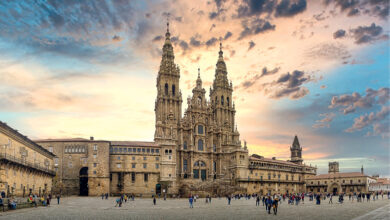Debt and politics

Post world war two, when the world was looking to rebuild itself, a conference was held in Bretton Woods New Hampshire to hammer out an economic system that would lead to the rebuilding of western economies. The economist at the centre of that conference was a man named John Meynard Keynes, who is arguably the most influential economist of the last 100 years.
Keynesian economics become the framework for how most countries operated and measured economic development. One concept at its core was simple enough to understand: In times of economic expansion, governments should run surpluses to reduce debt, so that in times of economic recession, they can run deficits to stimulate the economy.
Simple in theory, but in practice, the execution of said strategy is at the whims of politicians and by extension, the voters that put them there.
This is why the state of Canadian government spending before Covid left something to be desired. Prior to the global pandemic, most provinces and the federal government were all running deficits. Then the pandemic hit. I don’t believe that anyone would argue that the government should have done nothing, but it turned a bad situation worse.
Canada’s national debt, which stood at approximately $685 billion is now estimated to be approximately $1.15 trillion and growing. And this does not count the provincial debts which make the situation far worse. Ontario alone is estimated to be at over $400 billion.
To put that into context, the federal debt alone is equal to approximately $30,218 for every man, woman, and child in the country and is now approximately 117% of the Gross National Product. Meaning that even if 100% of all the income generated in Canada was spent to repay the debt, it would take more than a year. And that still doesn’t touch the amounts owed by the provinces.
For the record, at the start of the Greek debt crisis, they were at 127%.
So what are our candidates for Prime Minister going to do about all this? The answer is, regardless of who you chose, likely not much for now. The Liberals who oversaw the 10% increase in the national debt over the course of six years, despite a strong economy, have made no promises as to when they will eliminate the deficit, the first step in reducing the debt.
While the Liberals have made no promises, the NDP has promised even less in that area.
As for the Conservatives, they have promised to balance the budget in ten years. Let’s be clear about this: that is a pipe dream. We have no idea what a post covid world will look like or when it will stop being a factor altogether. The Conservatives are counting on near uninterrupted economic growth to achieve this goal, and of course winning three elections. Both results are unlikely to go as planned especially given the uncertainty in the world today.
So what will actually happen?
Here is the truth: No one is going to get elected by promising to hand out less money during a global pandemic or tax you more. Unfortunately, the reality is the only way to deal with this problem is to increase revenue (taxes) and decrease spending. And to complicate matters, the problem with both those options is that they both slow economic growth.
Tax reform and spending cuts might not happen right away but they will have to happen in short order. We simply cannot continue to add almost half a billion dollars in debt per day to the total.
Why not? Because if not, debt payments will become a greater burden on the economy. This could make us less of a sound borrower in the eyes of lenders, which could result in a credit rating cut. If that happens the interest rate on new debt will increase making a bad situation worse and has the danger of creating a downward spiral.
This can be fixed, in fact, we as a nation have been in a bad place before. In 1994 debt to gdp hit its previous all-time record high of 95% resulting in the Wall Street Journal calling Canada an “honourary member of the developing world.”
We got out of that situation over the next ten years, and we can get out of this one, but one thing is for sure. Whoever gets into office won’t have an immediate impact. We are going to be fixing this for a long time to come.
Manuel Luis








Redes Sociais - Comentários